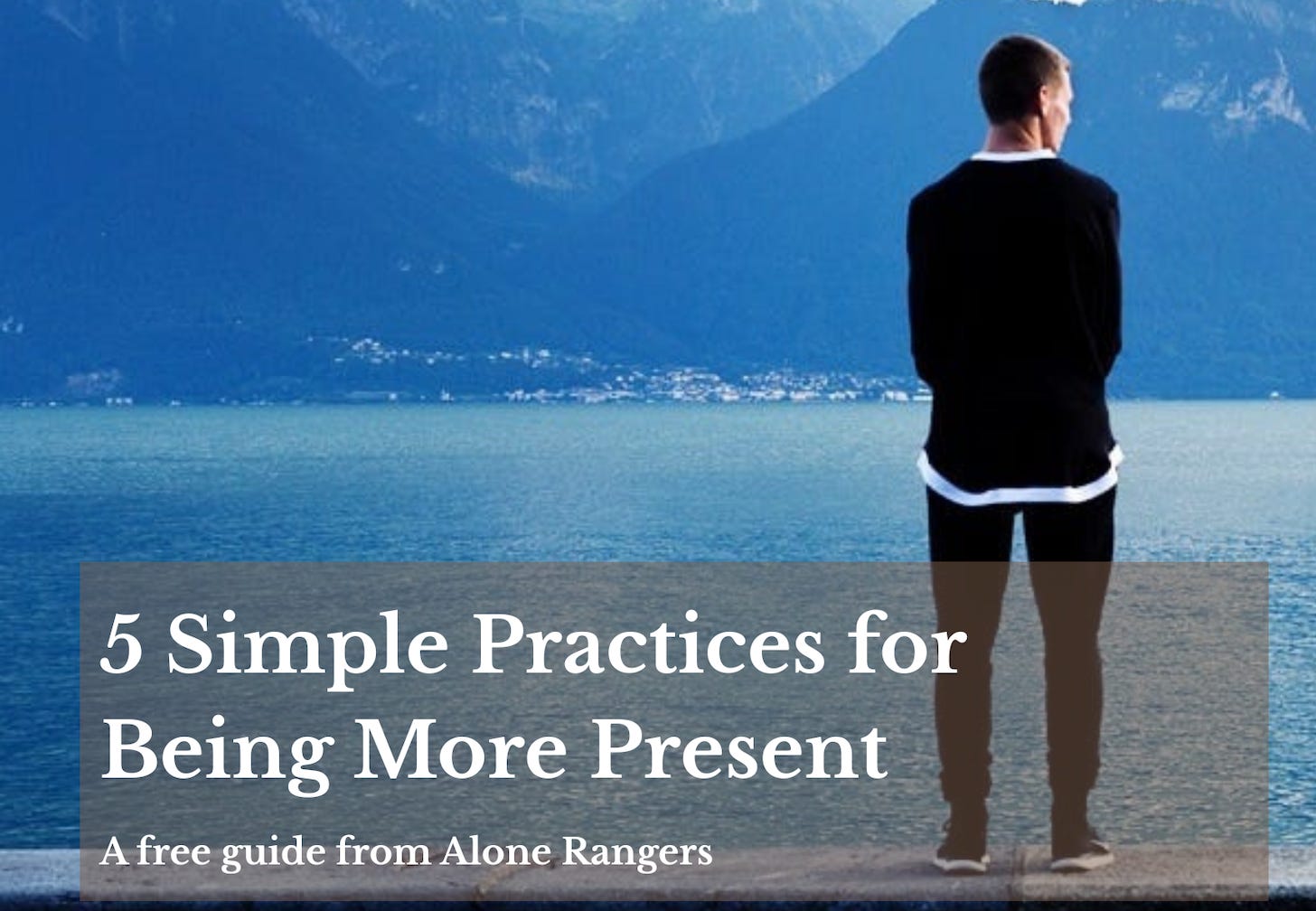Being Present - The Gift of Now
Being present doesn't require special equipment or extensive training.
I attend two Pilates classes a week - one on the mat and one using studio equipment. I’ve pursued my pilates practice for more than five years, and classes have become a fixed point in time and space for me. I’ll adjust my other plans to ensure I make the classes, if at all possible.
At the end of this week’s mat class, my lovely instructor pulled me aside almost conspiratorially as the only other classmate left. Then, quietly, she told me I had a large hole in the groin of my shorts, which meant I’d been flashing my undies to her for an hour! We both laughed. I will confess I’ve had those shorts forever, so I guess everything has a lifespan.
Hilarity about my state of undress aside, I’ve thought carefully about why I take pilates so seriously. Absolutely, it’s about helping my body as I age, and pilates is marvellous for lengthening and stretching. It’s very focused work on specific muscles and parts of my body, which means I’ve learnt so much about how everything in my body interacts. I’ve learnt to breathe correctly.
But most importantly, it’s a moment of presence. Everything outside my class is excluded; I’m one hundred per cent concentrating on all the minutiae required to move through the exercises. My mind is single-tracked, I ignore the clock (well, mostly!). I’m watching my breath, checking in with each of the muscles, and listening to our instructor. I ignore what anyone else in the class is doing; my attention is solely on me and the moment.
I started pilates the year before COVID. I did take a break for a few months while the studio was closed - I didn’t really take to online classes during the lockdowns. But I have been very consistent since then. Slowly and often imperceptibly, my body has evolved. And so has my capacity to be present in a moment, prompted by the demands of my pilates classes.
Presence works like that, not as a destination you reach, but as a capacity you build.
We think of mindfulness as something you either have or you don’t, as if some people are naturally present and others are hopelessly distracted. But presence isn’t a personality trait. It’s a practice that builds over time, just like Pilates or any other skill that matters.
The word “practice” is often used loosely in various circles, but we don’t always take the time to consider what it truly means. A practice isn’t something you perfect and then file away as accomplished. It’s something you return to, again and again, each time building slightly more capacity. My Pilates practice is the culmination of over five years, and it continues to evolve.
The brilliant aspect of this approach is that it alleviates the pressure of perfection. You’re not trying to achieve some permanent state of zen-like calm. You’re simply building the muscle of returning to now, and each return makes the next one slightly easier..
When we practice presence, we’re building three interconnected capacities:
The capacity to notice when our mind has wandered. This awareness itself is presence—the moment you realise you’ve been mentally elsewhere is the moment you’ve returned.
The capacity to return without judgment. We don’t berate ourselves for wandering. We simply come back, like gently redirecting a curious child.
The capacity to stay a bit longer each time. Not forever, but incrementally building our ability to remain in the present moment before the next distraction pulls us away.
At Pilates, we practice various breathing techniques that are crucial for preparing the body for each exercise. Yet these are simple tools that I can use in everyday life, including those 3 am sleepless moments, to avoid my mind spiralling.
The real gift of presence isn’t just deeper connections or better focus, though both certainly follow. It’s the gradual realisation that we always have the capacity to return to now, no matter how far we’ve wandered.
No matter how distracted I’ve been, how scattered my day has felt, how lost in worry or regret, I’m only ever one breath away from presence. One conscious choice away from here and now.
Like breathwork, most practices that support being present don’t require special equipment or extensive training. You don’t need to meditate for hours or attend retreats. You just need to choose one small practice and try it today.
Perhaps it’s a good idea to put your phone in another room during dinner. It could be taking three conscious breaths before starting your workday. Maybe it’s as simple as listening to one person today - really listening - without planning your response. It could be noticing yourself mid-scroll and making a different choice.
Start small. Build gradually. Trust the process.
The gift of now isn’t some mystical state you achieve and then maintain forever. It’s the quiet relief of discovering that you can always return home to this moment, and that each return strengthens your capacity for the next.
Ready to build your presence practice? Download my free guide, featuring five simple practices to help you get started.



